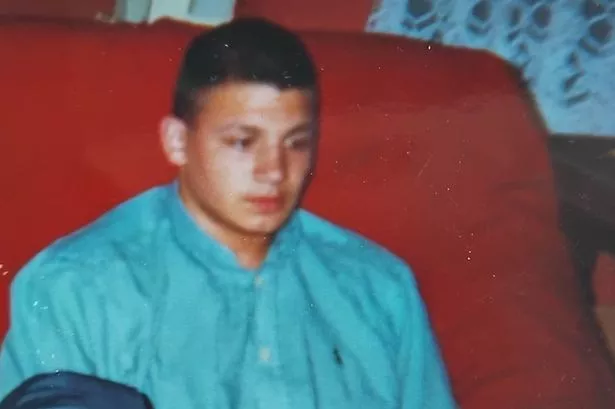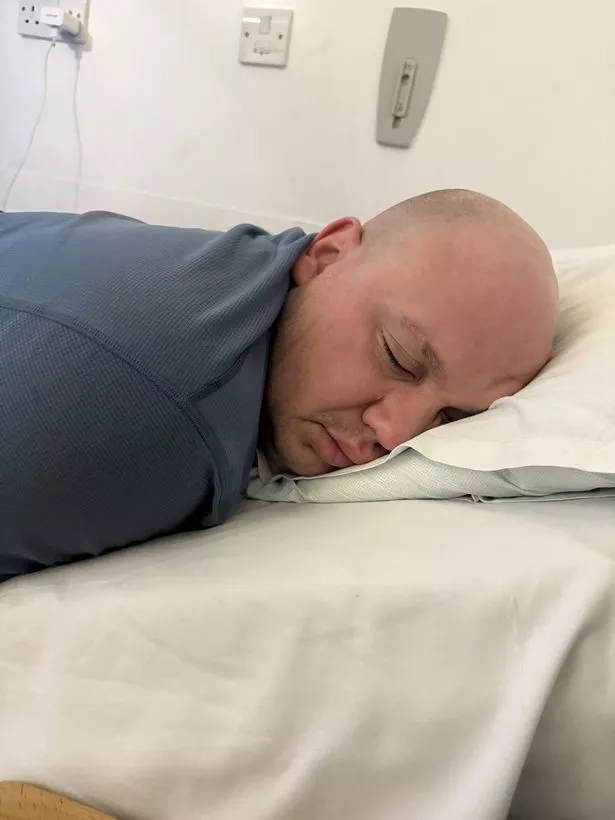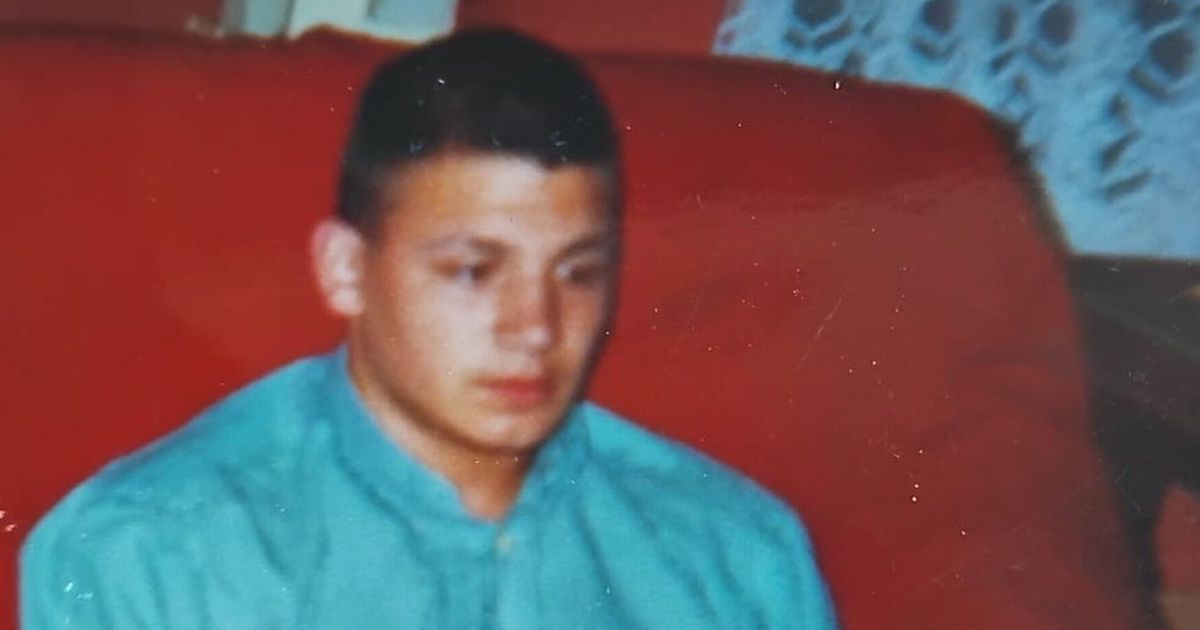Lee Ashby said he is “a shadow of my former self” after being jailed under the now-banned Imprisonment for Public Protection (IPP) system Lee Ashby, from Wirral, has spent 20 years behind bars despite being given a 14-month sentence(Image: SWNS)
Lee Ashby, from Wirral, has spent 20 years behind bars despite being given a 14-month sentence(Image: SWNS)
A man who has spent 20 years behind bars despite receiving a 14-month sentence has broken his silence on the “mental torture” of indefinite imprisonment. Lee Ashby, a 41-year-old from Wirral, was incarcerated under the controversial Imprisonment for Public Protection (IPP) system, which imposes indeterminate sentences on prisoners.
Despite three attempts at resettlement into the community, he remains in custody with no clear release date. Mr Ashby, speaking to the SWNS news agency from HMP Liverpool, said the undefined prison sentenced was a form of “mental torture”, describing being “confined to a cell for 22 to 23 hours a day as a young boy”.
He said: “It just feels like groundhog day. Most days, I hate waking up.
“I’ve suffered with self harm because there’s literally no help and no support for people like me.” Lee recalled how he had been placed on 24-hour watch at HMP Wymott for five weeks in 2020 after trying to end his own life.
“I’ve recently just been diagnosed with ADHD and autism, but it took them 40 years.
“If I would have committed exactly the same offence just a few years later, I would have got a three-year sentence.
“But because I got an IPP, you’ve still got me now, lingering away in jail, rotting away from my family without the help and the professional support that I need. I just can’t see a light at the end of the tunnel.”
 Lee Ashby, from Wirral, said every day “feels like groundhog day”(Image: SWNS)
Lee Ashby, from Wirral, said every day “feels like groundhog day”(Image: SWNS)
His mum condemned the IPP system and the fact that her son has been locked away indefinitely.
Denise Harvey, 57, a carer, called indefinite prison sentences “barbaric”.
Ms Harvey claimed the prolonged jail time had left her son feeling “hopeless” – like “he just wanted to die” – because he didn’t know if he would ever leave what he called his “six foot concrete coffin”.
“Being stuck in there with just his own thoughts over 21 years, it’s just added to all of his mental health issues,” she said.
“He just doesn’t know when he’s going to be released.”
IPP sentences were abolished in 2012 over human rights concerns, but the abolishment did not apply retrospectively, meaning many prisoners have been left in prison with no sign of being released.
This has sparked strong international criticism, including from the UN.
In February, the UN special rapporteur on torture, Dr Alice Jill Edwards, said it was “very likely” that the government was breaching their human rights, and called the practice “psychological torture”.
 Lee pictured with his mum, Denise Harvey(Image: SWNS)
Lee pictured with his mum, Denise Harvey(Image: SWNS)
Mr Ashby has been released on license three times over the course of his sentence to try and resettle into the public. But he only managed to remain out of prison for 16 days after his release in 2016, five days after his release in 2023, and seven months after his release in 2024.
In June, Mr Ashby was recalled and given 16 weeks in jail after appearing at Knowsley Magistrates Court in Liverpool charged with possessing a bladed article in public.
According to his family, the incident that led to Lee being recalled was a case of attempted self harm.
Ms Harvey said: “The police were called because he had cut himself with a pair of scissors. He needs to be in the hospital.
“The judge has sentenced him to 16 weeks for carrying a bladed article in public, but then he’s gonna have to wait up to two years for a date with the parole board.”
His mother blames his repeated failure to be resettled on his ongoing mental health struggles and problems with his medication.
Ms Harvey said: “Once he’s released, he’s still on a 99 year licence so if he does anything whatsoever he’s back on recall.
“He’s got multiple personality disorders. In prison, he was on psychotic drugs to calm him down, to keep him safe. For six years, they worked. He kept his head down, taught other prisoners how to read and write. He’s got a degree in psychology.
“But when he was out, they said it would take two years of assessments before he was actually given the right medication.”
“They let him down with everything the first time he was released. The second time, the medication wasn’t in place. This time, he had medication but only an anti-anxiety drug and something to help him sleep.
“He got in a fight when he was 18,” she said, describing how her son has had serious mental health issues all his life.
“He can be a great lad who can be funny, kind and generous”, she added, claiming her son just needs the right care and right medication.
Recalling how her son had been moved around from one prison to another over the course of his sentence, she said: “They give them drugs to calm them down, then they give them drugs to keep them quiet.
“Then they ship them out to another prison where he can’t have the old drug so he has to go cold turkey. It’s been on and off like this his whole life. He’s been shipped from one to another about twenty times, going between twelve different prisons!”
Lee added: “It’s like they consistently want to play games with your mind. I’m just a shadow of my former self.”
A Ministry of Justice spokesperson said: “It is right that the IPP sentences were abolished. As the IPP annual report showed, we have improved support for these offenders, with greater access to rehabilitation and mental health support.
“We will work to reduce the number of IPP offenders in custody, but only in a way that protects the public.”
